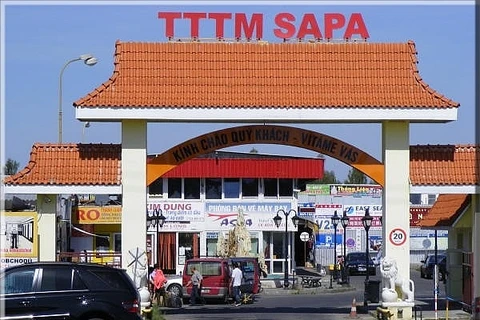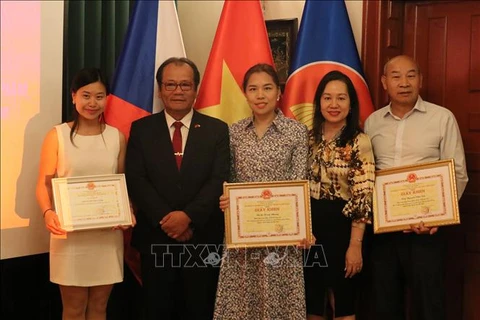 The Czech Government approves new export strategy for the 2023-2033 period at a meeting on July 26. (Photo: VNA)
The Czech Government approves new export strategy for the 2023-2033 period at a meeting on July 26. (Photo: VNA) Specifically, he proposed paying attention to the US, the Republic of Korea, Israel, Georgia, Vietnam, and African countries.
He affirmed that the chamber supports the Government's plan to create conditions for exporters, thus helping diversify their exports to countries outside the EU, and making it easier for companies to operate in foreign markets in a long term and enhance competitiveness through supporting the export of innovative products.
The new export strategy aims to strengthen the position of Czech companies in the supply chain and diversify exports outside the EU.
It also provides a framework for the Government to strengthen and adjust support for exporters, thereby helping sustain the economy and improve the living standards of its people.
Speaking at a Vietnam-Czech Republic business forum in Prague in June, Czech Deputy Minister of Industry and Trade Edvard Kozusnik affirmed Vietnam is the most important partner of the European country in Asia, with two-way trade reaching 2.4 billion USD last year.
Also at this event, Zdenek Zajicek announced the organisation of a delegation of Czech businesses to visit Vietnam in September./.
VNA























